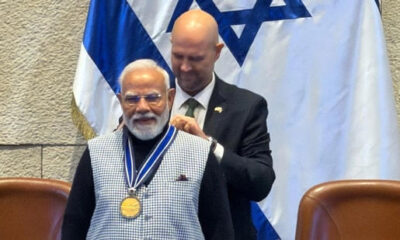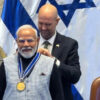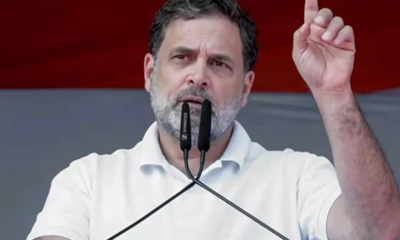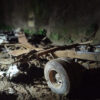India Rejects Trump’s Nuclear War Claim, Stresses Conflict With Pakistan Was Conventional
India on Tuesday firmly dismissed former U.S. President Donald Trump’s claim that Washington had averted a nuclear war between India and Pakistan, stating categorically that all military actions undertaken during the recent conflict remained within the bounds of conventional warfare.
Addressing a media briefing, External Affairs Ministry spokesperson Randhir Jaiswal underscored that there was no nuclear dimension to the standoff, as suggested by Trump. “The military action was entirely in the conventional domain,” he said, refuting allegations that tensions had escalated to the brink of nuclear confrontation.
“There were some reports that Pakistan’s National Command Authority was meeting on May 10. But this was later denied by them. Pakistan’s Foreign Minister has himself denied the nuclear angle on record,” Jaiswal added, dismissing speculation surrounding potential nuclear escalation.
In a recent interview, Trump claimed the United States had intervened to prevent a nuclear war between the South Asian neighbors. “We stopped a nuclear conflict. I think it could have been a bad nuclear war. Millions of people could have been killed,” Trump said, referring to what he described as U.S.-brokered diplomacy following a sharp escalation in hostilities.
However, India responded sharply to this narrative. Prime Minister Narendra Modi, addressing the nation for the first time since Operation Sindoor, reiterated that India would never succumb to threats of nuclear blackmail. “India will not tolerate any nuclear blackmail. We have only kept our operations in abeyance against Pakistan. The future will depend on their behaviour. Operation Sindoor is now India’s new policy against terrorism—a new line has been drawn,” he declared.
Modi’s remarks were widely interpreted as a warning to Pakistan that India remains prepared for further action if provoked, but has no intention of engaging in nuclear brinkmanship.
Earlier media reports indicated that U.S. officials, including Vice President JD Vance, had communicated with Indian authorities after receiving what was described as “alarming intelligence” regarding potential nuclear developments in the region. According to The New York Times, the U.S. government felt compelled to act diplomatically amid fears that the crisis might spiral into a nuclear exchange.
Speculation also swirled that India had conducted airstrikes on Pakistan’s Kirana Hills—a site suspected of housing elements of its nuclear arsenal. These reports were flatly denied by Air Marshal AK Bharti, Director General of Air Operations, who clarified, “We have not hit Kirana Hills.”
India’s latest rebuttal reflects its long-standing position that it will not be drawn into nuclear gamesmanship and remains committed to conventional military responses against terrorism.
IT.




































